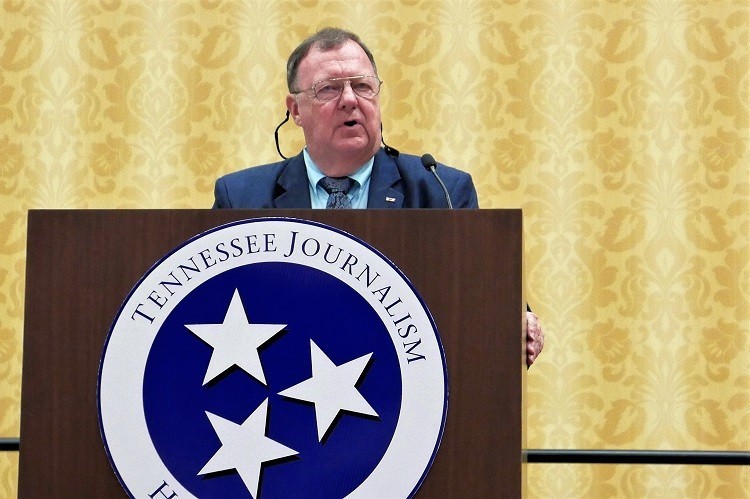MURFREESBORO, Tenn. – (MURFREESBORO) Presidential debates and the mistakes that often go along with debates - - Does anyone really pay attention to these debates? And do the debates make a difference when it comes to voting? With today's media commentary, here is MTSU Professor Larry Burriss... Hear more commentaries by Dr. Burriss by clicking the "Burriss" graphic below.
VERBATIM: “Well, the first two presidential debates are over, and the candidates, well, actually, the “candidate wanna be’s” said pretty much what we expected them to, in what was, in essence, a series of mini-speeches and personal attacks.
But none of the candidate committed any serious gaffes, which is more than can be said for other encounters in the 63-year history of the televised debates.
In the first debate, in 1960, for example, candidate Richard Nixon refused to wear television makeup, and his decision gave him a tense, haggard image next to the fresh and vibrant John Kennedy.
Another mistake hurt another Republican, this time incumbent Gerald Ford, who, in 1976, insisted Eastern Europe was not dominated by the Soviet Union.
In 1992 another blunder helped undo another Republican candidate, President George Bush. The president was clearly uncomfortable in the more informal format of debate, and at one point the cameras caught him stealing a telling glance at his watch.
But the Democrats have also had their share of problems. In 1988, candidate Michael Dukakis coldly answered a question about a hypothetical rape and murder of his wife by reiterating his opposition to the death penalty, and calling for an international conference to fight the spread of drugs.
But the important question, of course, is not did someone make a mistake, but do the voters really care about the missteps, gaffes and blunders? Well, there is evidence the voters don't care, unless the media tell them they should.
The fact is, for instance, when Ford made that mistake about Poland and Eastern Europe, polls showed that the viewers later that evening and the next morning, didn't think anything much had happened. It was only after a couple of days being told what a blunder this had been, that the public decided Ford had made a mistake.
So what do we get from these debates? Probably not much. The offhand remark, the nervous tic, the shifty gaze, the nasty exchange or the funny line that brings genuine laughter, is often what sticks in the public's mind after presidential debates.
These indelible moments are like video shots at a wedding - the only parts you remember are because you see them again and again. And like the neighbor’s picture of their new grandchild, we will hear about them again, and again, and again, whether they're important or not, and whether we want to or not. - I'm Larry Burriss.”
About Dr. Burriss - Larry Burriss, professor of journalism, teaches introductory and media law courses. At the graduate level he teaches quantitative research methods and media law. He holds degrees from The Ohio State University (B.A. in broadcast journalism, M.A. in journalism), the University of Oklahoma (M.A. in human relations), Ohio University (Ph.D. in journalism) and Concord Law School (J.D.). He has worked in print and broadcast news and public relations, and has published extensively in both academic and popular publications. He has won first place in the Tennessee Associated Press Radio Contest nine times. Dr. Burriss' publications and presentations include studies of presidential press conferences, NASA photography, radio news, legal issues related to adolescent use of social networking sites, legal research, and Middle Earth.
Dr. Burriss has served as director of the School of Journalism, dean of the College of Mass Communication and president of the MTSU Faculty Senate. He was appointed by Gov. Phil Bredesen to serve on the Tennessee Board of Regents. He was a lieutenant colonel in the U.S. Air Force and served on active duty in Mali, Somalia, Bosnia, Central America, Europe and the Pentagon.






